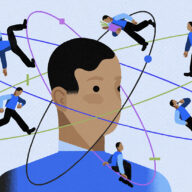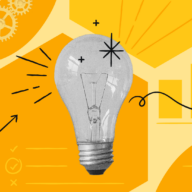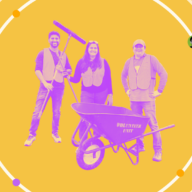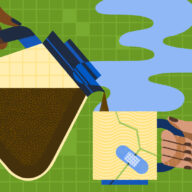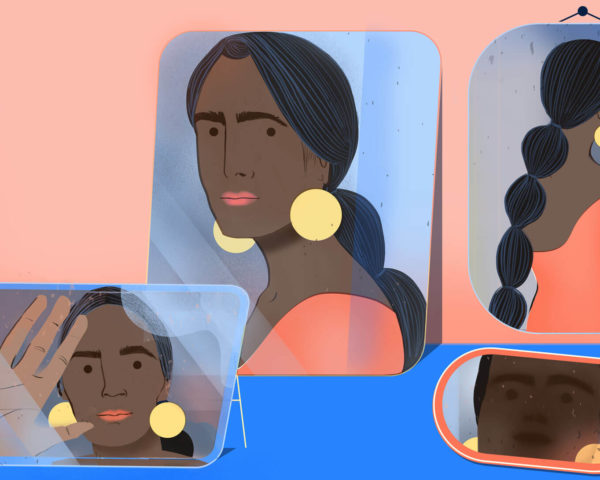Your colleague has been experimenting with a new automation tool and insists your team should use it to speed up some of your workflows.
Everybody has reservations – this person has only used this tool a few times and there are complexities in these workflows that are difficult to automate – but your team member isn’t willing to listen to the naysayers. Confident, eager, and excited, your overly optimistic coworker charges ahead with rolling out the tool.
It isn’t long before your workflows are a tangled knot and your team member is grappling with how things went so wrong when they swore they were an expert.
Been there? It’s tempting to write off your colleague as misguided, stubborn, and even arrogant. But in reality, they defaulted to a common cognitive bias: the Dunning-Kruger effect.
The Dunning-Kruger effect: What it is and why it happens
The Dunning-Kruger effect is a cognitive bias that occurs when someone overestimates their knowledge and abilities. It was first coined by David Dunning and Justin Kruger, both psychologists at Cornell University, in their 1999 paper.
The psychologists conducted four different studies that each tested participants on humor, grammar, and logic. Participants weren’t just evaluated – they were also asked to predict their own performance. The participants who scored in the bottom quartile of the tests had grossly overestimated their own abilities. Their actual performance, on average, put them in the 12th percentile, despite the fact they self-estimated they’d be closer to the 62nd percentile. That disconnect lives at the heart of the Dunning-Kruger effect.
The typical “sitcom dad” is one trope where you’ll see this particular bias pop up. He refuses to ask for directions on a road trip and gets his family hopelessly lost. He insists he can complete a basic home repair only for chaos (and property damage) to ensue. He’s confident he can cook a family meal, then the frying pan starts on fire.
But that tired comedy device implies that the Dunning-Kruger effect relates to basic intelligence and only happens to the most bumbling and inept among us. In reality, the Dunning-Kruger effect can happen to all of us – including you.
What is a cognitive bias?
The Dunning-Kruger effect is one of many cognitive biases our brains can fall victim to. A cognitive bias is when you allow your personal preferences and beliefs to influence your decisions – even if other information threatens or disproves those preconceived notions. Think of it as a brain shortcut that helps you process the overload of information you take in daily. It’s not a perfect system, but one our brains seem intent on sticking with, because it’s our system (that’s called modal bias, by the way).
Why does the Dunning-Kruger effect happen?
But why do some of us tend to be so optimistic about our abilities, especially in areas where we should readily recognize that we have limited knowledge and skills?
In their paper, Dunning and Kruger described it as a “dual burden.” We charge ahead while overestimating our talents, but we also lack the awareness (something Dunning and Kruger called “metacognitive abilities”) to recognize that we’re falling short in the first place.
Basically, you don’t know what you don’t know. Because you’re inexperienced in a particular area, you don’t have the basic information you need to distinguish between a good performance and a bad performance. Think of it like this: If you’re not into wine, you probably can’t tell the difference between a $10 bottle and a $100 bottle.
Another reason we tend to aggrandize our own skills and talents is that it can feel shameful to admit that we don’t know something – hence why “fake it ‘til you make it” is such a popular slogan.
What are the four stages of the Dunning-Kruger effect?
The four stages of competence model is often talked about in conjunction with the Dunning-Kruger effect. This model shows how learning progresses through four distinct phases. These stages are:
- Unconscious incompetence: You are completely unaware of a gap in your skills or knowledge
- Conscious incompetence: You are aware of the skill or knowledge you lack and are eager to acquire it
- Conscious competence: You are able to perform the new skill, but with a lot of focus and effort
- Unconscious competence: You are able to perform the skill so naturally and easily, you can do it without much conscious thought
It’s in the first stage – or the transition between the first two stages – when the Dunning-Kruger effect most commonly comes into play.
What’s the harm in the Dunning-Kruger effect?
We all over-inflate our abilities occasionally. But even so, most of us still have a somewhat realistic grasp on what we’re capable of – you probably aren’t volunteering when somebody on a plane asks for a doctor simply because you’ve watched a few medical dramas.
So is this cognitive bias really all that bad? What’s the harm? Dunning-Kruger does have some potential for fallout, including:
- Poor decision-making: Whether it’s pursuing a career that ultimately isn’t a match for your abilities or volunteering for a project you can’t realistically pull off, that dual burden can trigger some poor decisions.
- Mistrust among team members: If your overconfidence becomes a pattern, your co-workers could start to doubt your ability to perform at a high level in any area. A tendency to overpromise and underdeliver erodes teammates’ trust.
- Potential danger: Overestimating your skills could pose a danger to yourself and others, particularly in hazardous and high-risk careers.
The Dunning-Kruger effect isn’t all bad, though. A little extra optimism and self-assuredness could be what’s needed for people to achieve stretch goals that might’ve seemed completely unreasonable to others.
Dunning-Kruger vs. imposter syndrome
The Dunning-Kruger effect seems to be in direct conflict with one of its better-known relatives: imposter syndrome, which occurs when we underestimate our own talents and worry (without reason) that we’ll be exposed as frauds.
The two are indeed opposites, but it’s possible to experience both types of blind spots. Dunning-Kruger tends to show up in areas where we lack expertise but assume we’re proficient. In contrast, imposter syndrome happens when we really are experts but distrust our own intelligence anyway.
Is the Dunning-Kruger effect even real?
Like any other theory or finding, the Dunning-Kruger effect has been the focus of criticism – with some skeptics pointing toward regression to the mean or even random occurrence to explain the original study’s findings, rather than a real defect in our self-insight.
But beyond the scholarly hole-poking, perhaps the biggest problem with the way we talk about this bias lies in the undercurrent of shame. Academic explanations are riddled with words like “incompetent,” “ignorant,” and “poor performer,” terms that can understandably trigger some self-consciousness and humiliation.
As a result, identifying the Dunning-Kruger effect as the cause of someone’s bias can feel like a personal attack, even though it’s a universal experience – something that can (and will) happen to all of us.
How to overcome the Dunning-Kruger effect
While it’s bound to still creep in from time to time, awareness is the best antidote to the Dunning-Kruger effect. Here are a few strategies you can use to fuel reflection and recognition, for yourself and your team.
Overcoming the Dunning-Kruger effect yourself
Most of us like to think of ourselves as self-aware, but one study found that only 10-15% of people fit the criteria. Here’s how you can get a more realistic grasp on yourself and your capabilities:
- Solicit feedback from various sources: 360-degree feedback offers a well-rounded perspective of your performance, capabilities, and what you’re like to work with. While some companies make this a formalized process, you can solicit feedback from the people you work with on a steady basis (such as during 1-on-1 meetings, at the end of big projects, or during performance review cycles) to keep your self-perception in check.
- Reflect on your past experiences: History is a great teacher, especially when it comes to boosting your self-awareness. Look back on previous projects or challenges. When have you struggled? When have tasks felt effortless? What are you consistently praised for? What work fulfills you? What drains you? This can clue you in on where your capabilities are best utilized.
Overcoming the Dunning-Kruger effect on your team
If you’re leading a team, there are a few other steps you can take together to minimize this bias and root everybody in reality:
- Prioritize psychological safety: A high degree of psychological safety means people feel more comfortable admitting they don’t have the necessary know-how to do something, rather than feeling like they need to put on a front.
- Value and celebrate diverse skills: As a manager, it’s tempting to zone in on patching up weaknesses on your team. But classic research from Gallup found that a strengths-based culture, as opposed to one that fixates only on growth areas, increases employee engagement. Plus, people will feel valued for their unique attributes rather than pushing beyond their capabilities to get your recognition and approval.
- Complete a self-reflection exercise: The Johari window is a personality assessment that improves your understanding of yourself. You’ll select five or six terms that best describe you and your colleagues will also select descriptors they think fit you best. You’ll plot the qualities on a matrix to see how your self-perception compares to the way your colleagues view you.
- Fuel a growth mindset: A team that has embraced a growth mindset is hungry to learn and improve and views failures and mistakes as learning opportunities. You can feed this mindset by providing plenty of resources – like mentorship, seminars, books, courses, and other professional development opportunities – for team members to explore and refine their skills.
- Give thoughtful and honest feedback: Constructive criticism is hard to hear and sometimes even harder to deliver. But if you keep your lips zipped and let your low performers continue to assume they’re knocking it out of the park, they’ll stay on that same path, blissfully unaware that they’re falling short.
Aim for awareness, not apprehension
It’s off-putting to know your brain is basically hardwired to trick you into an inflated self-assessment. But the goal here isn’t to inspire doubt or hesitation. Rather, understanding the Dunning-Kruger effect and how it might show up in your work and your life will help you build your self-awareness.
When you have a more pragmatic sense of your actual strengths and weaknesses, you’re able to seek out roles, projects, and situations where you (and the other people on your team) can shine – not struggle.





 )
) 







